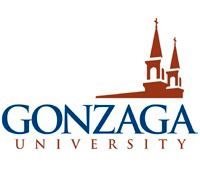Below is a summary of the abstract you submitted. Presenting author(s) is shown in bold.
If any changes need to be made, you can modify the abstract or change the authors.
You can also download a .docx version of this abstract.
If there are any problems, please email Dan at dar78@pitt.edu and he'll take care of them!
This abstract was last modified on May 9, 2017 at 2:50 p.m..

For two semesters students in Biology 405: Advanced Phage Biology, aka Phancy Phage Lab, worked on three separate phage projects. One group investigated lysogen sensitivity in K Cluster phages. Lysogens of Gonzaga phages SamuelLPlaquson (K1), DrHayes (K1), Cain (K6), and Taquito (K4) were tested for homo-and hetero-immunity against K-phages and the phage lysates from the Host Range Challenge. Adephagia, a K1 phage, was able to infect the Cain (K6) lysogen even though other K1 phages were not. Another team chose Microbacterium testaceum and Brevibacterium fuscum for the Host Range Challenge. In addition to testing the challenge phages for the capacity to infect the hosts, each bacterial strain was tested for the ability to grow in different media including TGY, 7H9, and PYCa. The final group of Phancy Phage students attempted the Xeno Challenge and tested over 100 Gonzaga phage lysates on the Xeno lysogen.
